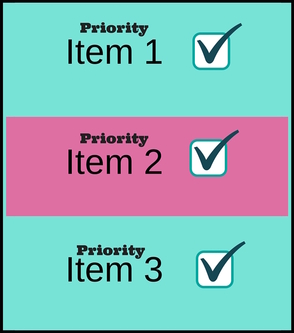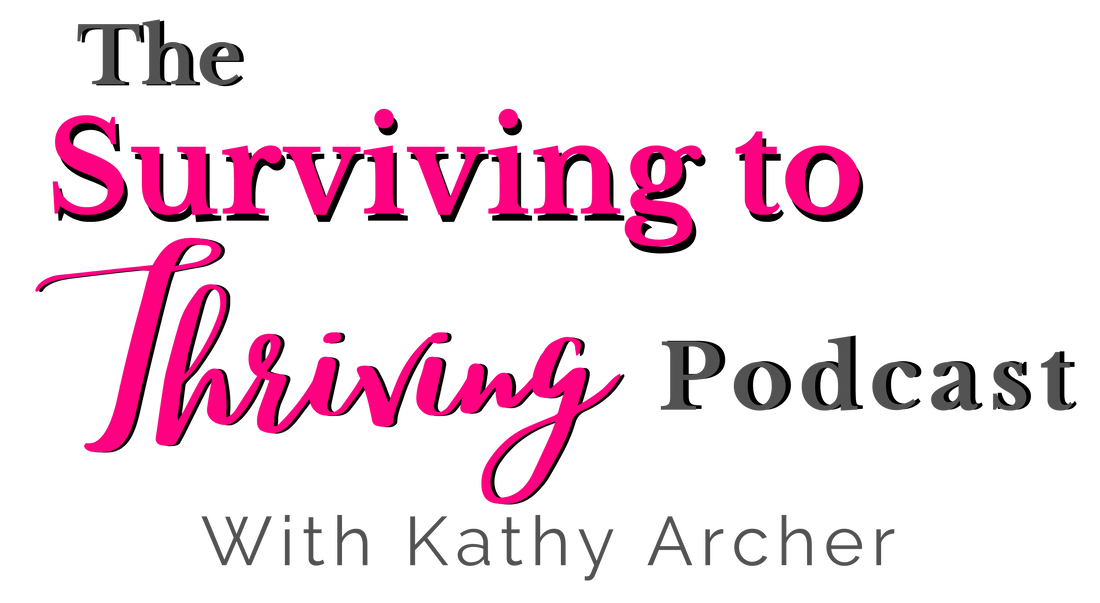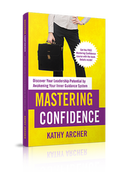|
In a recent article from Forbes magazine, women are encouraged to break through the self-made barriers to be themselves and propel themselves forward. A cheer for women everywhere, yet a hard reality to face. Even though we know this, applying these lessons take courage and commitment. Where can women find that? It's true for most women I’m often reviewing the recesses of my memory looking for a story to tell my audiences. I want to share how I took the lessons learned in my leadership and life experiences and applied them to developing myself. By telling these stories, I want to motivate and inspire women to grow themselves. Sadly, I have many stories to choose from to share. There was a time I was thrown under the bus by my peer, attacked verbally by an employee, and used as a scapegoat by my team when they were unhappy with union negotiations. I was looked over by my boss. I was afraid to apply for next level positions. And yes, I neglected my family more times than I care to remember. The Forbes article I regularly landed in all three categories listed by the Forbes magazine article, which indicates that:
My determination got me through When I look back at my journey, it seemed just when I figured one thing out, there was another encounter to face. I came back, repeatedly facing those battles, determined to figure it out leadership. I was determined to figure out how to lead will and live fully. Your fear is very real Your encounters with fear of failure, family challenges and the feelings you don’t quite measure up are “normal” and very real. The question is how to overcome them. I will give you the 4 “easy” steps to overcoming barriers and finding confidence. The steps, I dare say, are not so easy. It takes courage, time and a deep desire along with immense support. 4 not so easy, steps to overcoming barriers and finding confidence Courage Courage is the ability to face your fears and keep moving. It comes from deep within you. It’s like this flame that burns, heating you up and encouraging you forward. The more you notice it and fan it, the strong it gets. Courage gives you the ability to do things even when you feel like not doing them.
Time It takes time. There is no more truth than that. The development of confidence doesn’t all happen overnight. It is continued focus and effort over time that will make the difference.
Deep Desire Passion is what heats you up. Think of a truly passionate moment with your lover. Now remember a heated argument. Both are passion. That heat is what gets your adrenaline flowing and gives you the stamina to have wild, passionate sex and to fight for what you believe in. Accessing that passion in your work helps to heat you up also and gets your juices flowing so you can dig deep and stay the course.
Immense Support The only way through life is in relationship with others. We truly don’t do anything alone. My husband has always been the biggest cheerleader in my life and work. I’ve had good friends along the way who have encouraged me and pushed me forward. I would never have made it through my earlier career without two loving babysitters that not only cared for my children but also understood why I dropped them off each morning. They too supported my work.
It's not what happens, it is what you say to yourself about what happened As the article indicated, these are inner demons. All of my fears, doubts, beliefs and insecurities started in my mind. Did my boss overlook me? Perhaps, but it was what I told myself about it that was far more damaging than what he did or didn’t say. Overcome your inner voices The ability to develop confidence and step fully into leading and living starts with getting control over what you say to yourself. Begin with the exercises above.
Take the time to grow your confidence These exercises will help to grow your confidence. That increased confidences will allow you to lead and live, with purpose and passion and peace in your heart.
1 Comment
Developing solid habits will have you move from frazzled & frantic to focused & flourishing. Habits are the magic trick. They are the secret elixir and habits are the golden ticket. Success in any career or facet of life comes as a result of doing a few things routinely every day. Leadership is no exception.  1) Wake early Early risers know that when they take the time for themselves in the morning, they are more grounded and relaxed as they start their day. It does mean you have to go to bed early and get a solid 7+ hours of sleep. What to do when you wake early? Do things for yourself that you complain you never have time for. Meditate, journal, simply sit quietly and have your coffee. How I do it I wake at 5 am and do the following each morning: weigh myself, drink a large glass of water, shower, do yoga, meditate, read scripture, journal, read, review my goals and eat breakfast. Even on weekends. I may get up an hour later, but that’s it. All of the things I longed to have time for in the past are now done before half the rest of the world even wakes up.  2) Eat breakfast You have heard that breakfast is the most important meal of the day. But here, is maybe what you didn’t know about breakfast. Willpower is the ability to stay focused on something or avoid other things. Strong willpower requires fuel. The fuel comes from what you eat and gets turned into the stuff inside you that helps your brain to be focused and clear. That clarity is what you really need in leadership. So, eat your breakfast. How I do it I have for years eaten oatmeal every morning. I’ve switched it up recently to an oatmeal pancake (oatmeal, an egg and cinnamon with a tiny bit of water). High in protein, the oatmeal fuels my body to be able to maintain stellar focus to work on what is important.  3) Exercise Our bodies crave movement, yet we sit most of the day. Get in the habit of going for a walk at lunch or when you get home. You might add a trip to the gym 3 times a week. Schedule it in your daytimer. You could also make exercise a regular part of your morning routine, seeing as you are going to get up earlier anyhow! How I do it One of the biggest changes for my confidence as a leader happened when I started lifting weights. Strengthening my body helped me to stand up taller and stronger and gave me an inner feeling that shows up on my presentation. I do 20 minutes of my mini trampoline several times a week as well as regular walking, yoga and yes, weights.  4) Take breaks Habitually taking breaks lets your body, mind and soul relax. Leaders are “on” all the time. Being able to shut off for a few minutes several times a day helps to counterbalance the magnitude of stress leaders are faced with. Go for a walk around the block, step out back and simply watch the birds. Relax. How I do it Each morning, even as I work from home now, I have a break at about 10:30 and eat my yogurt. When I am writing, I use the Pomodoro technique and write for 20 minutes, take a 3-minute break and then do two more sets of 20 minutes. On the breaks, I stretch, look at something other than a computer screen and have a glass of water.  5) Practice gratitude Practicing gratitude allows us to move our vibrational energy into positivity rather than the negative cesspool we spend much of our days. Appreciate what has gone well. Recognize things that worked or that helped you out. How I do it Each morning when I journal, I write down a list of what I am grateful for. I try to emotionally connect to that feeling when I write it down. It has meaning for me, and my body responds positively when I re-engage those feel-good emotions.  6) Write down goals Knowing what you are working on, at work and personally are critical to achieving great things. Yet, many people have no idea what specifically they are focusing on. Writing down your goals, in a place that you can connect to each and every day helps keep them alive and you focused on them. How I do it I went through a process in December/January to help me clearly identify what I wanted to be working on this year. I look at those goals every morning. Once a month I write down how I have progressed on that goal. For example, one of my goals was to have 10 women register for Women with Grit this fall. In the summer, I recorded the behind the scenes work I was doing to get ready to open registration this month.  7) Focus on Priorities Rather than trying to manage time, successful women know they need to manage the important things. In order to do that, you have to know what is important. That starts with knowing your goals as well as having a clear sense of what is standard day-to-day work. From there, getting clear on the top priorities for the day will help you decide what to do and when to do it. How I do it Each morning I write down the 3 things I MUST get done that day. I focus on those three things before I do anything else. Most days, those 3 things are done before 11 am. This also requires I have goals, I review my goals and I keep them up front and center, so I know what my 3 priorities are each day.  8) Ritualize pauses Pauses are those tiny moments that most of us forget to takes throughout our day. By ritualizing them, you can increase their frequency. Take a deep breath before you get out of your car in the morning, after hanging up the phone or when you return from going to the bathroom (you are taking bathroom breaks right??) How I do it I make a habit of taking a deep breath when I notice I'm getting wound up. Whenever I am switching from one activity (writing) to another (social media posting) I stop and take a breath and a stretch. It's not a break, simply a pause.  9) Note daily lessons Each of us is provided with lessons on a regular basis. When we notice them, we learn from them. When we don’t, we get the same lesson again, maybe this time with a little more vigour. Instead of a gentle reminder to eat healthily, we end up at the hospital. Forgetting something once, and not learning from it causes a big mess. Noticing lessons requires you to consciously look at situations, consider what you have learned from them and then apply the lesson learned to change it for the better in the future. How I do it In my daily journaling, I note lessons I learned the previous day. I may realize that answering the phone in the middle of my power writing time threw me off and so the lesson is to ignore the phone. It will heighten my will power the next time the phone rings rather than habitually answering it. Noting daily lessons helps me to develop success habits rather than mediocre habits.  10) Count successes (not failures) We have been programmed to notice lack and scarcity rather than abundance. We notice what we didn’t get done on our to-do lists rather than celebrating what we did. Begin to notice the successes you’ve had. Note the success when staff who was about to pop their head in the door stepped back and kept moving as a result of boundaries you set yesterday. How I do it As I fall asleep most nights, I make a note of all the things I was able to do and accomplish and what worked well. I’ve also at times journaled this in the evening. Noting what I accomplished reminds me of progress on goals rather than only focus on achievement. Question: Adding any or all of these habits will drastically change your success and your happiness levels! What one habit will you work to establish in the next month? |

Available on Amazon
Archives
May 2024
|
|
Leadership TRAINING for Nonprofit Leaders
Become a confident and competent nonprofit Leader: Join The Training Library membership Executive and Leadership COACHING Leadership Coaching for Nonprofit Executives, Leaders and ManagerCoaching |
PODCAST for Nonprofit Leaders
The Surviving to Thriving podcast: Strategies, systems and support to lead your nonprofit with confidence FREE RESOURCES to Grow your Leadership Skills Free Leadership Training Resources, Worksheets and Templates |
Become a CONFIDENT LEADER
|





 RSS Feed
RSS Feed
